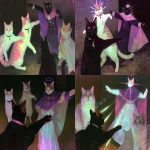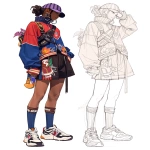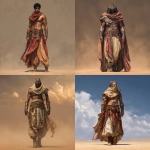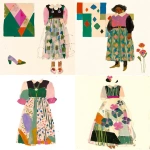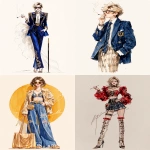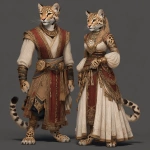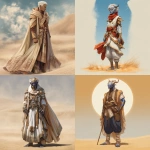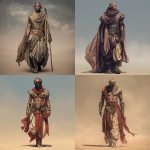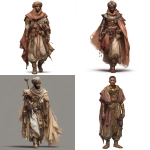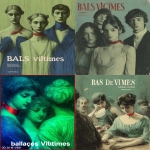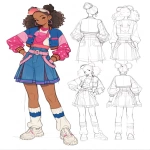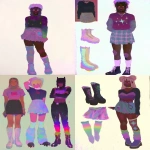Explore the Best AI Image Gallery

Blockchain in Finance: Reimagining Creativity and Innovation
The financial world is undergoing a radical transformation, with blockchain technology emerging as a key driver of innovation. Beyond its well-established role in cryptocurrencies and decentralized finance (DeFi), blockchain is poised to revolutionize various sectors, including the creative industry. By enabling secure, transparent, and efficient transactions, blockchain offers a new paradigm for artists, creators, and businesses to engage, collaborate, and monetize their work.
Potential Uses of Blockchain in Creative Industries
The decentralized and immutable nature of blockchain presents exciting opportunities for the creative industry:
- Copyright Protection and Ownership: Blockchain can create a tamper-proof record of ownership for digital assets, such as music, art, and software. This helps artists retain control over their creations, prevent unauthorized copying, and ensure fair compensation.
- Royalties Management: Smart contracts on blockchain can automate royalty payments to creators every time their work is used or sold. This eliminates intermediaries and ensures that artists receive their due share of revenue.
- Digital Identity and Authentication: Blockchain-based digital identities can verify the authenticity of creators and their works, building trust and transparency in the marketplace.
- Community Building and Collaboration: Decentralized platforms powered by blockchain can foster communities of artists, collectors, and fans, enabling collaborative projects and shared ownership.
Examples of Blockchain in Creative Applications
Several innovative projects are already leveraging blockchain to transform the creative landscape:
- SuperRare: A marketplace for unique, digital artworks stored as non-fungible tokens (NFTs) on Ethereum.
- Audius: A decentralized music streaming platform that empowers artists to control their music and connect directly with fans.
- Rarible: A community-owned NFT marketplace where creators can mint, sell, and trade digital assets.
Ethical Considerations
While blockchain offers immense potential, it is crucial to address the ethical considerations associated with its use in the creative industry:
- Digital Divide: Access to blockchain technology and its benefits may not be equitable, potentially widening the gap between established creators and emerging artists.
- Copyright Infringement:** Despite blockchains ability to track ownership, malicious actors could still attempt to exploit vulnerabilities or circumvent copyright protection measures.
- Data Privacy: Blockchain transactions are publicly viewable on a distributed ledger. Artists need to be aware of the potential implications for their privacy and sensitive information.
Future Trends
The intersection of blockchain and creativity is constantly evolving. Here are some future trends to watch:
- Interoperability between Platforms: Greater compatibility between different blockchain platforms will facilitate seamless collaboration and asset transfer.
- Decentralized Autonomous Organizations (DAOs):** DAOs can empower communities of creators to govern themselves, manage projects, and distribute revenue in a transparent and democratic manner.
- Integration with Artificial Intelligence (AI):** AI-powered tools on blockchain can enhance creative workflows, automate tasks, and generate novel content.
Blockchain technology has the potential to reshape the creative industry by empowering artists, fostering collaboration, and enabling new forms of value creation. As this technology continues to evolve, we can expect even more innovative applications that redefine the future of creativity and innovation.





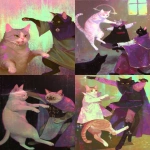

](https://images.ai-img.art/thumbnails/150/0d8b16612b25a2dd9330a8ef0c7240bc5a6f45a038cd304f485676838acd2a01.webp)
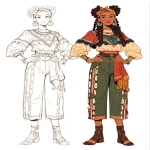
](https://images.ai-img.art/thumbnails/150/9c9a0c4bd1c20b04244933e2ae6343258e191c6c4c31f16238192afba0c26c60.webp)

](https://images.ai-img.art/thumbnails/150/00411daa9cf10e0c94ae30b5d0cd715631ee9b3fd361f45d5a8189ef7a1dcbf7.webp)




](https://images.ai-img.art/thumbnails/150/2d43acddef8af8522ee872ad9c8e16a49c8a90a6c7a9dfa3788bee6a903c18d0.webp)

](https://images.ai-img.art/thumbnails/150/237ede784c728906c1ca2233f538619f3a0846abc9acbb463f4e484d96430e54.webp)

